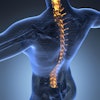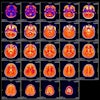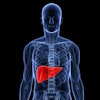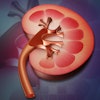
An artificial intelligence (AI) algorithm that quantifies blood flow on cardiac MRI can predict -- perhaps better than a physician can -- if a patient will have a heart attack or a stroke, according to research published online February 14 in Circulation.
Using methods developed at the U.S. National Institutes of Health (NIH), a team of researchers led by Dr. Kristopher Knott of University College London (UCL) and Barts Health National Health Service (NHS) Trust in the U.K. found that AI could accurately and quickly quantify myocardial perfusion on cardiac MRI. In a study involving over 1,000 patients at two U.K. hospitals, patients with reduced blood flow were much more likely to have major adverse health outcomes such as heart attack, stroke, heart failure, and death.
"This study demonstrates the growing potential of artificial intelligence-based imaging technology to improve the detection of heart disease and may move clinicians closer to a precision medicine approach to optimize patient care," said co-author Peter Kellman, PhD, of the NIH in a statement from the UCL. "We hope that this imaging approach can save lives in the future."
The AI-based method created by Kellman and Hui Xue, PhD, utilizes a convolutional neural network to automatically segment the left ventricular cavity and myocardium. Next, myocardial blood flow and myocardial perfusion reserve are automatically quantified on perfusion maps.
The researchers evaluated the AI method on 1,049 patients of St. Bartholomew's Hospital and the Royal Free Hospital with a median follow-up of 605 days. Of these patients, 42 (4%) died and 174 (16.6%) had a total of 188 major adverse cardiac events.
Knott and colleagues found that the AI-calculated perfusion metrics were independently associated with both death and major adverse cardiac events. Even after adjusting for age and comorbidity, they calculated the following:
- For each 1 mL/g/min decrease in stress myocardial blood flow, the adjusted hazard ratio was 1.93 for death (p = 0.028) and 2.14 for major adverse cardiac events (p < 0.0001).
- For each 1 unit decrease in myocardial perfusion reserve, the adjusted hazard ratio was 2.45 for death (p = 0.001) and 1.74 for major adverse cardiac events (p < 0.0001).
The researchers noted that myocardial perfusion reserve remained independently associated with death and major adverse cardiac events in the 783 patients without regional perfusion defects on clinical reads and with no known macrovascular coronary artery disease. However, stress myocardial blood flow remained associated only with major adverse cardiac events in those patients.
"The predictive power and reliability of the AI was impressive and easy to implement within a patient's routine care," said senior author Dr. James Moon, from UCL and Barts Health NHS Trust, in a statement. "The calculations were happening as the patients were being scanned, and the results were immediately delivered to doctors. As poor blood flow is treatable, these better predictions ultimately lead to better patient care, as well as giving us new insights into how the heart works."





















